#Self-drivingCars
Autonomous Vehicle Legislation Unlikely to Go Anywhere in 2020
Legislation that would advance the widespread deployment of autonomous vehicle in the United States appears to have stalled. With development of the technology hitting a rough patch and public perception teetering between AVs being a major breakthrough for society or an important contributor to its demise, any new laws might have been irrelevant anyway.
Outside of major players like Waymo, companies making consistent progress on the technology are hard to find; meanwhile, it’s becoming increasingly difficult to decide who’s at fault when a computer-controlled car goes off script and hurts someone or destroys property. Drivers don’t want to be liable, since they’re not technically supposed to be the ones in control (once true self driving arrives) and manufacturers don’t want to assume any more responsibilities than absolutely necessary.
Those concerns and more were reportedly on full display during last week’s Automated Vehicles Symposium. Designed to take the pulse of the industry and decide where AVs currently stand, the event seemed to showcase that there wasn’t much to be done this year. Whether it be the fault of companies overestimating how quickly the technology would advance (yes), the impact of pandemic-related lockdowns (yes), the unappetizing nature of the mobility concept (yes), or a lack of effective, well-informed governance (yes), 2020 seems to be a wasted year for vehicular autonomy.
'Language!': German Court Slaps Tesla for Bad Words
Hey, how bout that bitchin’ new Bronco- whoops! Sorry, got ahead of myself there. The check hasn’t even arrived yet!
In news unrelated to a Ford model Car and Driver wrote 13 stories about in the last 24 hours, a German court has smacked Tesla for misleading its citizens. The ruling, brought on by a complaint from an industry group, involves something that’s plagued the auto industry for years. Essentially, the overstating of a car’s autonomous driving abilities.
Thankfully, we’ve reached a point where even the Associated Press Stylebook is warning about inaccurate self-driving language use, but old habits die hard at Tesla. Germany didn’t like what it heard.
Elon Musk: Level 5 Autonomous Driving 'Very Close'
Tesla is reportedly “very close” to achieving complete driving autonomy, according to CEO Elon Musk.
“I’m extremely confident that level 5 or essentially complete autonomy will happen and I think will happen very quickly,” Musk said during a video message for the opening of Shanghai’s annual World Artificial Intelligence Conference.
Study Says Autonomous Taxis Will Cost Users More Than Car Ownership
When Sir Thomas More coined the term “utopia,” he lifted two words from Ancient Greek that roughly translate into “not a place.” Turns out people from the 16th century still understood satire, perhaps better than we do today. After all, we are the ones operating under the assumption that we can remap society in order to build consequence-free transportation network without a shred of humor to keep us grounded.
We may not need satire in this instance, however. A new study published in the American Journal of Public Health asks questions about how just effectively the shift to autonomy will benefit society as a whole. Industry leaders have broadly framed the shift toward self-driving as kicking down the door to an idyllic universe where no one wants for transportation, with autonomous taxis serving as the first wave of this planned paradise. The reality may be vastly different that what’s being sold, however.
NHTSA Readies New Voluntary Autonomous Driving Database
The National Highway Traffic Safety Administration (NHTSA) plans to release new guidance for automakers to make autonomous testing data available to the public. As you are no doubt aware, the concept of self-driving cars is losing steam. The industry finds itself confronting hurdles it never could have anticipated, slowing progress, while high-profile mishaps have shaken the public’s faith.
While polling has hardly been consistent (and often conducted by actors who frame the questions to get a desired answer), reputable outlets have shown us that public acceptance of self-driving cars declined over the past few years. The NHTSA would like to offset this by allowing regular folks to more easily track the industry’s progress, while encouraging a bit of competition among companies as they compare themselves to each other in a new database.
IIHS Denounces Concept of Total Safety From Autonomous Cars
When the United States began passing legislation allowing automakers to begin testing self-driving vehicles on public roads, it was framed almost entirely as a safety issue. Proponents claimed that the only way to eliminate roadway fatalities was to take the human brain out of the equation and let cars drive themselves. Having enacted a similar no-thinking policy themselves, legislators agreed — pleased to have ensured a death-free future on little more than empty corporate promises.
At the time, we were still complaining about the unreliable nature of advanced driving aids, and how such systems seem custom-made to dull your reflexes behind the wheel. There was a sense that, if everything went perfectly, maybe autonomous vehicles (AVs) could reduce accidents by previously unheard of levels. That feeling didn’t last particularly long here at TTAC and, by 2018, we started noticing we weren’t alone.
The Insurance Institute for Highway Safety (IIHS) grew increasingly critical of AVs starting a couple of years ago. On Thursday, it released a report claiming the idea of a no-crash future spurred by automation is a fantasy. Instead, the IIHS says cutting-edge technology will likely struggle to stop just a third of all accidents.
The Great Self-driving Revolution Gets a Language Check
Words have the power to inform or mislead. The descriptors “military grade” or “assault-style” did great things for public acceptance of a recent Canadian gun ban, prompting legions of voters to believe the government just banned once-legal, high-capacity machine guns. The reality was far different, of course.
In the automotive world, critics of the haphazard roll-out of certain advanced driving aids have long railed against the use of words like “autonomous,” “semi-autonomous,” and “self-driving” when referring to systems that most certainly are not fully autonomous. It seems the Associated Press agrees with their arguments.
It’s a win for clarity.
GM Lays Off Cruise Employees
Cruise, the self-driving arm of General Motors, is cutting roughly 8 percent its full-time staff as coronavirus lockdowns mar the economy and companies walk back development programs. You might have noticed the hype surrounding autonomous cars started dying down even before 2020 became the most miserable year in recent memory.
That made them prime candidates for cost-saving cuts. Health concerns have likewise made autonomous concepts like “robotaxis,” where occupants are confined together in small, self-driving shuttles, far less appetizing. Cruise actually showed off a six-passenger AV it developed and built back in January. Interested in paying to ride face to face with complete strangers?
We didn’t think so.
Hunt Ends: American Center for Mobility Names New CEO
Following a nearly six-month search for new leadership, the American Center for Mobility (ACM) has named Reuben Sarkar as its new CEO. The Michigan-based facility has been without a chief executive since Michael Noblett left in November of 2019, leaving COO Mark Chaput in charge while the company hunted for a replacement.
It found one with Sarkar. He’s positioned to assume his new role at the historic site (Willow Run) that manufactured B-24 bombers in World War II before transitioning to GM vehicles and eventually the testing of autonomous cars, in early May. But this isn’t one of those cushy CEO positions where one can sit back and enjoy a sizable annual bonus. Intellectual property conflicts, legal hazards, and a longer-than-presumed development timelines have stagnated the self-driving industry. Mr. Sarkar is going to have his work cut out for him — though we’re sure he’ll still be well paid.
Seeing Ghosts: Self-driving Cars Aren't Immune From Hackers
Autonomous vehicles “feel” the road ahead with a variety of sensors, with data received sent through the vehicle’s brain to stimulate a response. Brake action, for example. It’s technology that’s far from perfected, yet self-driving trials continue on America’s streets, growing in number as companies chase that elusive driver-free buck.
In one tragic case, a tech company (that’s since had a come-to-Jesus moment regarding public safety) decided to dumb down its fleet’s responsiveness to cut down on “false positives” — perceived obstacles that would send the vehicle screeching to a stop, despite the obstacle only being a windblown plastic bag — with fatal implications. On the other side of the coin, Tesla drivers continue to plow into the backs and sides of large trucks that their Level 2 self-driving technology failed to register.
Because all things can be hacked, researchers now say there’s a way to trick autonomous vehicles into seeing what’s not there.
Former Uber Self-driving Head Declares Bankruptcy
The former leader of Uber Technologies’ self-driving unit, Anthony Levandowski, filed for Chapter 11 bankruptcy on Wednesday, and it looks to have something to do with the $179 million he’s legally obliged to pay Google. A San Francisco County court decreed the same day that Anthony needs to pay out in order to settle his contract dispute.
In December, it was ruled that Levandowski and Lior Ron violated their agreement with Google when they left the company to start Otto — a rival autonomous vehicle company focused primarily on commercial trucking. Uber purchased Otto in 2017 but Google’s self-driving arm (which evolved into Waymo) claimed Levandowski violated intellectual property laws by stealing trade secrets it owned for Uber. While Ron decided to pay $9.7 million to settle with the tech firm, Anthony held out. He also faces a federal indictment over the alleged intellectual property violation.
Waymo Raises $2.25 Billion in External Funding Push
Waymo CEO John Krafcik announced Monday that his company amassed $2.25 billion in its external investment round. Considering Waymo is owned by Google parent Alphabet, one of the richest companies in the world, you’d think it’d be able to float some extra funding into autonomous development. However, even a company worth an estimated $1 trillion knows it’s better to source capital from outside the business — that must be on the first page of every tech company’s playbook.
Seen widely as the firm currently riding the tip of the autonomous spear, Waymo already operates self-driving shuttle programs (with a safety driver) in Arizona, with plans for expansion. The new funding aims to further those goals; however, with autonomous targets being missed by just about every company that bothered making them, we’ll wait to see what happens. The company is currently focused on getting its Waymo Driver system into more vehicles, starting with EVs and Class 8 trucks.
Something to Agree On: Everyone Wants More Autonomous Vehicle Legislation
While the United States has enacted some laws governing autonomous vehicles, the framework is pretty loose. Automakers have a cap on the number of test vehicles they’re allowed to field. They also have to get permission from the National Highway Traffic Safety Administration, but safety reporting is basically voluntary — and there’s plenty of conflict with existing safety standards.
A House Energy and Commerce subcommittee hearing held Tuesday sought to address the issue by gathering input from an array of sources, some of which had conflicting goals. And yet it appears that a consensus has miraculously been reached on Capitol Hill. All sides want more laws passed governing autonomous vehicles, albeit for various reasons. Consumer groups want assurances that AVs will remain safe and service as many people as possible; industry groups want a clearcut regulatory framework they can use to gradually shift test mules into products with more intellectual property protection and less red tape.
One-box Bliss? Cruise Origin Is GM's First Ground-up Driverless Vehicle
Did General Motors’ self-driving arm reveal the future on Tuesday night? The automaker and its Cruise LLC subsidiary sure hope so, as both see big, big dollars coming from future autonomous ridesharing fleets.
The Cruise Origin unveiled in San Francisco last night is supposedly the vehicle (don’t call it a car) that will make that revenue stream possible. It certainly doesn’t look like a car, and the difference grows even greater when those side doors part.
Survey: EV Interest Varies Wildly Between Nations, Ditto for Shared Ownership
If you follow the automotive industry at all, you’re undoubtedly aware that the United States is a region that hasn’t quite embraced automotive electrification on the same level as the rest of the developed world. Americans travel longer distances and have particular tastes, making EVs more popular in places like Europe and China. It also hasn’t passed the same sweeping regulations to ensure their advancement.
Whatever the cause, a new survey from London-based OC&C Strategy Consultants attempted to tabulate the disparity — asking 2,000 consumers (apiece) in the U.S., China, Germany, France and United Kingdom between March and April of 2019.
Their findings? Only about half of the surveyed Americans felt EVs were worth their consideration as a potential successor to their current ride. In China, 90 percent said they would seriously consider buying electric. Between 64 and 77 percent of respondents in Europe said the same (depending on country).





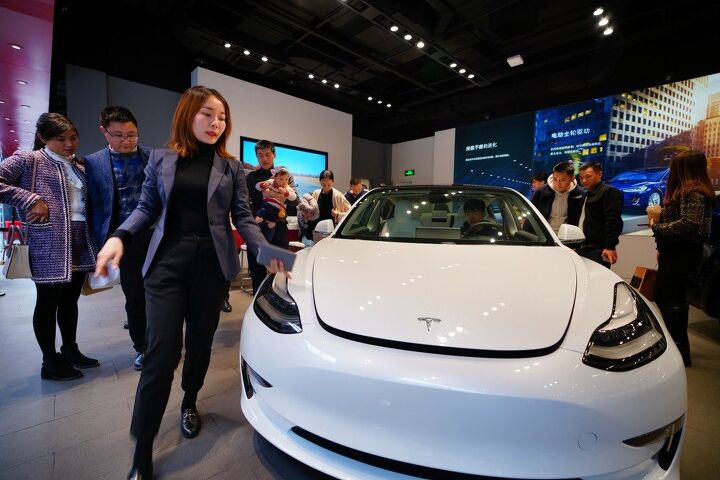



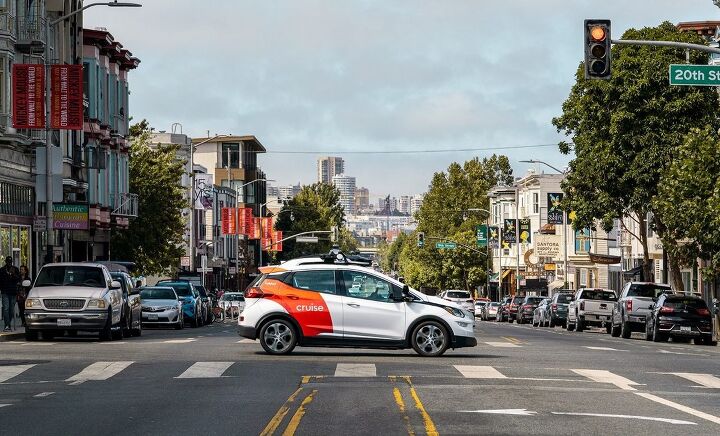

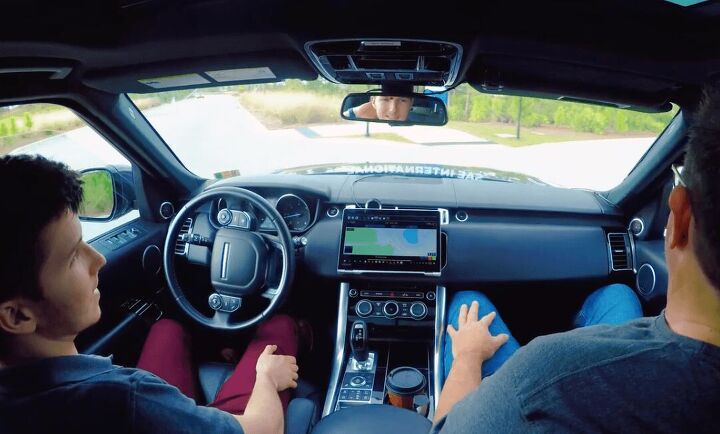
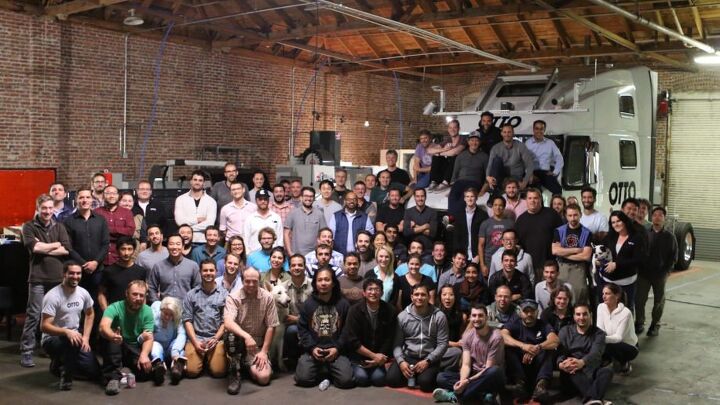

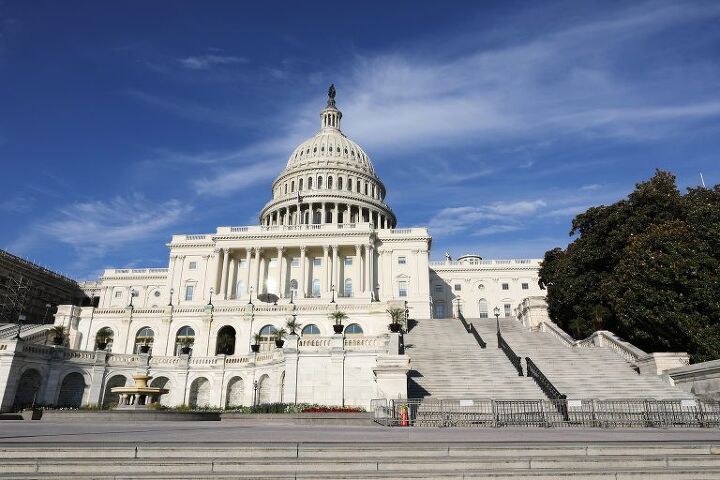
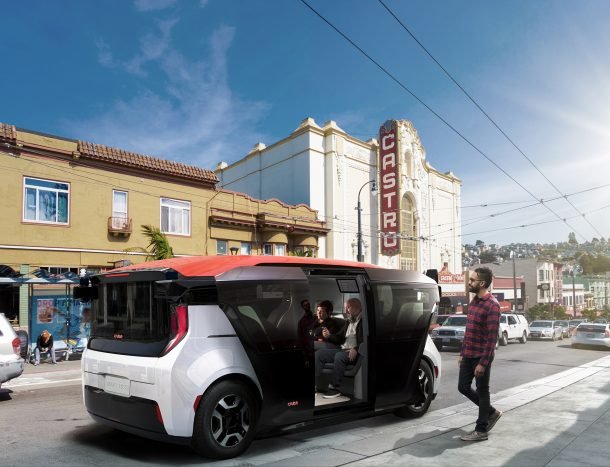













Recent Comments